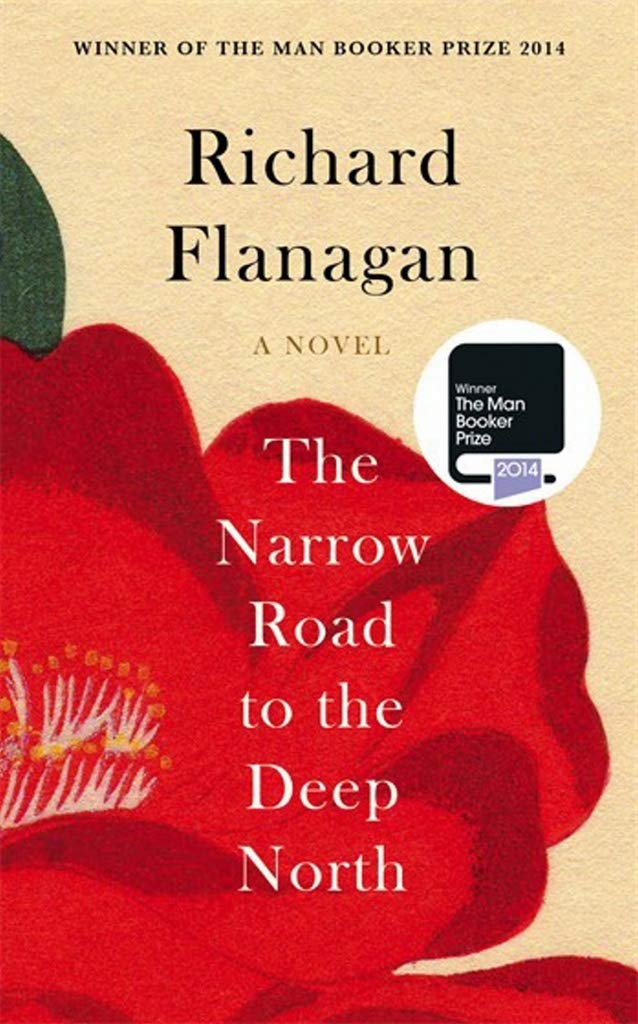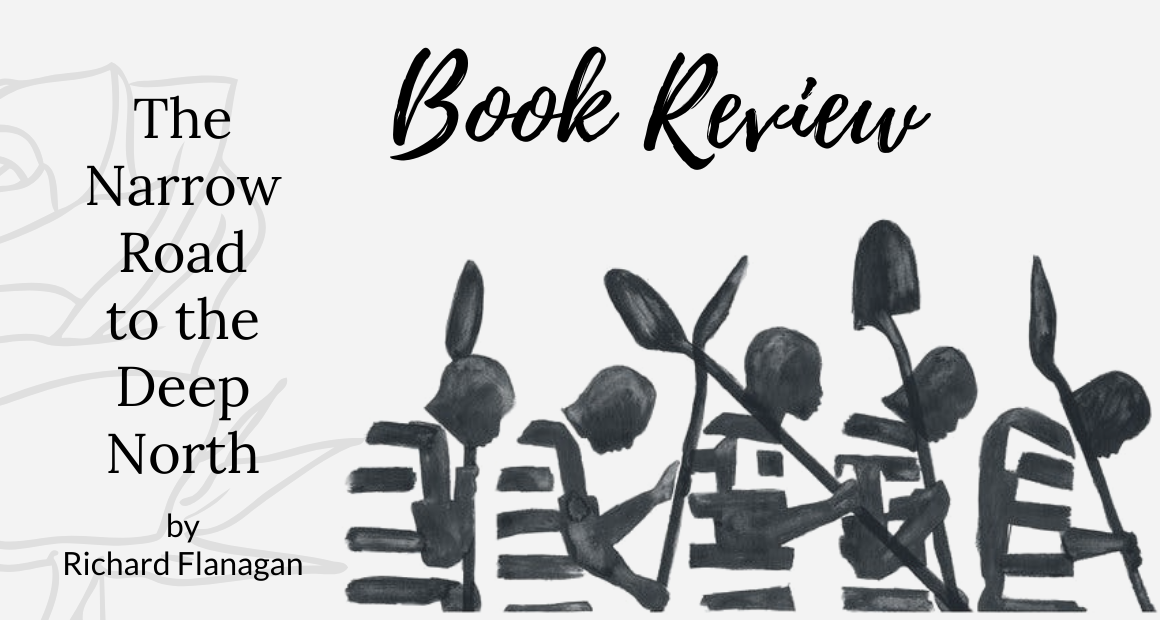Title: The Narrow Road to The Deep North
Author: Richard Flanagan
Publisher: Vintage Books
Genre: Historical Fiction, World War 2
First Publication: 2015
Language: English
Major Characters: Dorrigo Evans, Ella Lansburg, Amy, Major Nakamura
Theme: War, war crimes, and hell
Book Summary: The Narrow Road to the Deep North
Forever after, there were for them only two sorts of men: the men who were on the Line, and the rest of humanity, who were not.
In the despair of a Japanese POW camp on the Burma Death Railway, surgeon Dorrigo Evans is haunted by his love affair with his uncle’s young wife two years earlier. Struggling to save the men under his command from starvation, from cholera, from beatings, he receives a letter that will change his life forever.
This is a story about the many forms of love and death, of war and truth, as one man comes of age, prospers, only to discover all that he has lost.
Book Review: The Narrow Road to the Deep North
While reading this powerful novel about the Australian POWs during World War II, I couldn’t help but fall victim to the same dark sentiment expressed above. I may switch the television on to the news or read a headline in the newspaper and it does seem to fit. The senseless violence in our own communities or in the world at large – it seems to be a never-ending cycle. Flanagan rather bluntly depicts the brutality of beatings, starvation, horrific disease and gruesome deaths of the prisoners at the hands of their captors, the Japanese brandishing a wartime mentality and a pride for country in the service of their emperor.
The Narrow Road to the Deep North is an ambitious historical fiction book. It’s a “big” book. It centres on Dorrigo Evans, an Australian surgeon who is captured along with his men by the Japanese. They are among those tasked with building the death line, a railway to link Thailand and Burma. It’s not called the death line for nothing.
“A happy man has no past, while an unhappy man has nothing else.”
Dorrigo, as a human being, is an obviously flawed character. He doesn’t even believe in his own calling to lead men. But, his men put their lives in his hands and never question his rank or his ability. Forced under grueling and unbelievable conditions to build a railway for the Japanese through the rugged landscape of the Asian jungle, the POWs honor Dorrigo with their unwavering respect. He never quite seems to grasp why they do so. “As if rather than him leading them by example they were leading him through adulation.” But, this is one key to survival – finding something or someone in which to believe. Without it, one would undoubtedly give up.
But what motivates Dorrigo to survive and carry on with his duties? Well, of course, back home there exists his one true love – a love that should be out of reach, but not for the ambitions of Dorrigo Evans. Amy will wait for him when he returns from the war… or won’t she?
I think perhaps what I found to be the most compelling point of this novel was not the shocking events that we were obligated to witness in the camp itself, but the aftermath of the experience on all those involved, from the Japanese officers to the Korean guards to the Australian prisoners. What did these men feel after the war – sorrow, joy, guilt, or self-contempt? Would they be able to resume life as usual? Would the captors atone for what they had done to the prisoners?
“There are words and words and none mean anything. And then one sentence means everything.”
I should note here that this novel is not written in a chronological time-frame, but rather with constant shifts in time and also between multiple characters. I have mixed feelings about this approach. In one way I found this to detract a bit from my understanding of the book. I often felt that perhaps I should go back and make sure I didn’t miss something important at an earlier point in the book. Since I didn’t have all the information up front, could I not have read enough into certain passages at the beginning to take away what Flanagan was trying to say?
Probably the greatest mistake a reader of THE NARROW ROAD TO THE DEEP NORTH can make is to think they know what to expect from it. This very serious-minded book has occasional pieces of sly, wry, ironic humor that are mildly startling for their cropping up in the midst of much graver musings.
Something else I never expected to find in the pages of this book was a love affair that was so organic, conflicted, full of confusion and passion and doubt that it was all too devastatingly authentic. The word that most often springs to my mind in relation to THE NARROW ROAD TO THE DEEP NORTH is “real,” and Amy Mulvaney and Dorrigo’s mad, irresistible, forbidden love is as real as love ever gets.
The book has been critically acclaimed and has also won the Man Booker Prize in 2014.
Buy Now: The Narrow Road to the Deep North
[content-egg module=Amazon template=item]





